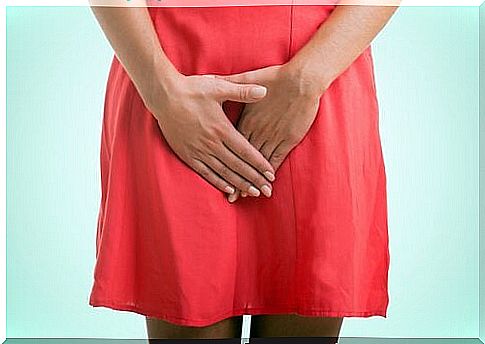Dysfunctional Menorrhagia: Symptoms And Treatments

Dysfunctional menorrhagia is a condition in the female body that is mainly related to hormonal changes. These can then cause profuse vaginal bleeding accompanied by severe abdominal pain and weakness.
This condition is thus associated in most cases with hormonal problems. However, it has also been linked to cases of, for example: drug poisoning, abortion, pregnant women with placenta previa and many other conditions. After that, we will explain more details about this problem.
What is Dysfunctional Menorrhagia?
There are two types of conditions that we call menorrhagia. One is called organic menorrhagia and the second is called dysfunctional menorrhagia.
Organic menorrhagia is caused by:
- genital infections
- fibroids
- inflammation of the cervix
- tumors
- endometriosis
- vaginitis
- polyps
Dysfunctional menorrhagia, on the other hand, is more directly associated with hormonal problems. It may be due to, for example:
- abortions
- changes due to hormonal drug therapies
- metabolic problems
- placenta previa
It is a condition that affects women of childbearing age and it is also quite common. It does not pose a serious health risk, except in cases where blood loss is associated with cancerous tumors.
Symptoms of Dysfunctional Menorrhagia
The symptoms of functional menorrhagia are associated with severe abdominal pain and heavy bleeding that last for seven or eight days. It is estimated that the blood loss per day can be around 100 milliliters.
A woman who suffers from this condition suffers from constant weakness, anemia and iron deficiency.

The bleeding caused by functional menorrhagia does not necessarily correspond to the period of menstruation. It is possible that this bleeding occurs on different days, either because of the progression of the cycle caused by hormonal treatments or because the bleeding is not a direct manifestation of the menstrual period.
Treatment for Dysfunctional Menorrhagia
There are several recommended treatments for dysfunctional menorrhagia, which depend on the causes of the bleeding.
- Suspension of drugs: The simplest and most direct treatment is linked to bleeding through the use of hormone regulation drugs. In these cases, stopping the drug should stop the bleeding or at least significantly reduce blood flow.
- Absolute rest: This is recommended if the causes of the bleeding are related to high-risk pregnancies when the fetus is at risk of abortion or if the mother has placenta praevia.
- Anovulatory: For very young women who have this condition, taking 10 grams of progestins is recommended. This is known as medroxyprogesterone acetate. They should consume it on the 15th to 24th day of the cycle, over a period of four to five months.
Alternative home treatments
There are also alternative treatments for dysfunctional menorrhagia. These could also help to alleviate or make the annoying symptoms disappear.
It is important to make it clear that the use of these natural remedies by pregnant women can cause health problems for the baby, if they are not approved in advance by your doctor.
- Tamarind juice with prunes: This drink serves as a home remedy to reduce or stop menstrual bleeding. It is rich in antioxidants and also has a beneficial effect on heart functions.
- Radish juice: It is known as a tuber that regulates hormonal disorders and also suppresses excessive bleeding. You can prepare this juice with water, but you can also eat the radish directly. Eat at least four units a day.

- Orange and lemon juice: This drink is one of the best to help reduce vaginal bleeding. It also provides high amounts of vitamin C and antioxidants.
- Eggplant and beets: The eggplant and beet drink is also said to be one of the most effective drinks to stop heavy bleeding. You need to take at least 350 milliliters a day to get immediate effects.
As a final recommendation, the woman showing symptoms of functional menorrhagia is advised to see her gynecologist as soon as possible. He or she can then determine the specific cause of the hormonal change. The doctor will also indicate the most suitable treatment for your specific case.









